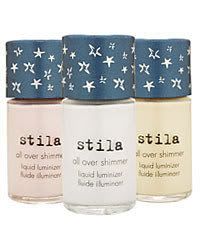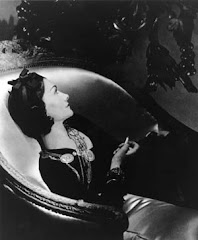
Nikosi Sikelel' iAfrika
Eve Hall born Paris 1937 died South Africa 2007
The spotted hawk swoops by and accuses me, he complains
of my gab and my loitering.
I too am not a bit tamed I am untranslatable,
I sound my barbaric yawp over the roofs of the world.
The last scud of day holds back for me,
it flings my likeness after the rest and true as any on the
shadowed wilds,
It coaxes me to the vapor and the dusk.
I depart as air, I shake my white locks at the runaway sun,
I effuse my flesh in eddies, and drift it in lacy jags.
I bequeath myself to the dirt to grow from the grass I love,
If you want me again look for me under your boot-soles.
You will hardly know who I am or what I mean,
But I shall be good health to you nevertheless,
And filter and fiber your blood.
Failing to fetch me at first, keep encouraged,
Missing me one place search another,
I stop somewhere waiting for you.
From Song of Myself, in Leaves of Grass by Walt Whitman
Thursday 8 November 2007
In memory of Eve Hall 1937-2007
Posted by
Linda Grant
at
22:18
0
comments
![]()
![]()
![]()
![]()
A mouth painted with Chanel lipstick can still say anything it likes.
 JANUARY 1993: I was standing in the offices of The Daily Telegraph being issued with a company flak jacket. It was navy blue, fastened at the sides with Velcro tabs and weighed a ton. "Don't take it off," they warned me. "I absolutely won't," I told them. I loved my new flak jacket more than any item of clothing I have ever owned. It could have been designed by Coco Chanel herself, that was how attached I was to it. Why? Because I was going to Bosnia.
JANUARY 1993: I was standing in the offices of The Daily Telegraph being issued with a company flak jacket. It was navy blue, fastened at the sides with Velcro tabs and weighed a ton. "Don't take it off," they warned me. "I absolutely won't," I told them. I loved my new flak jacket more than any item of clothing I have ever owned. It could have been designed by Coco Chanel herself, that was how attached I was to it. Why? Because I was going to Bosnia.
. . .
I tell this story because a myth has grown up that you cannot be serious and be interested in fashion, or in anything else that defines femininity. If you read the Economist, you cannot also read fashion magazines to find out what's happening on the catwalks.
Why? Who says? People who want to put down intelligent women, I think. It's a kind of warning to the wannabe babe: hide your brains, darling, if you don't want to wear flat shoes and no make-up for the rest of your life. It's as if there is some piece of government legislation on the matter: be a babe or be a bore, it's your choice.
published in the Telegraph February 2002
(the Bag Snobs meet the Wall Street Journal here)
Posted by
Linda Grant
at
19:32
7
comments
![]()
![]()
![]()
![]()
Labels: Published work
Not the church, not the state, women must decide their fate

When I got my first job in journalism, my mentor, Diana Pulson, feature writer on the Liverpool Daily Post, warned me to stay away from women's pages, which were she said, a ghetto of knitting patterns and recipes. A few years later, feminism had turned the Guardian women's page into the place where the feminist revolution was celebrated and debated. I thought myself incredibly lucky, in the early nineties when I eventually started to write for the Guardian women's page, under the editorship first of Louise Chunn (now editor of Good Housekeeping) and then Claire Longrigg, now editor of Psychologies. The story I did then that sticks in my mind was about the so-called False Memory Syndrome, when Louise and I fought a lengthy and fierce losing battle against some obtuse male editors.
Last night was the 50th anniversary celebration of the Guardian Women's page and I was gutted that I couldn't attend. Feminism is the only ism I will own up to; misogyny still rules the world, despite the absolutely concrete advances women have made in the past forty years. When I went back to my old university, York, last year, I remembered vividly the early meetings of the York women's action group:
I suppose I would have been horrified, back when I got my first journalism job, if I could have foreseen that I had, so many years later, implanted myself in the very ghetto (this blog, or aspects of it) that my mentor had warned me against. On the other hand, I remember, awestruck, meeting the seminal feminist Sheila Rowbotham whose book Hidden From History had so influenced me when it first came out. She was forty-eight at the time. 'Remember how we used to go on about not wearing make-up?' she said. 'It's all very well when you're in your twenties, but at my age it's a different matter.'I remember the fights over our women-only consciousness-raising meetings, invaded by male students who said they were undemocratic, and us marauding round the college television rooms turning off the sets where a few boys were watching Miss World. But now, 30 years later, there was Amy Burge, the university's elected women's officer, who is a third-year English student. I was incredibly pleased that what had begun with that manifesto on the dining room tables had survived into the present. I wanted to know what contemporary issues they were dealing with.
'Members of the student union want to outlaw women only meetings," she said. "We were told that we couldn't have elections for the women's officer where only women could vote, even though the women's officer was representing women, not men. We've got a campaign against sexual publications, and there's a motion to cover up lads' mags, but the student union gets a premium [from the distributors] to have them on display. We get a lot of support from the NUS but Nouse attacked us."
There was a stigma about being labelled a feminist, she said. People thought of them as hairy-legged lesbians in dungarees from the 1970s. I was about to say that it was ridiculous to peddle stereotypes, until it dawned on me that she meant us. It's true - I did have a pair of dungarees. Burge showed me a feminist "zine" the women's officers had produced that term. It was called Love Your Body. It had a big article on anorexia and self-harm scars. And I realised that back in the 70s we hadn't even heard of eating disorders. No one was on a diet; it was too cold not to fill up with scotch eggs and cake. There was no real pressure to look a certain way. We wore makeup at parties and when we felt like it. We lacked these deep, painful insecurities about our bodies - or did we?
Still the battles for women's rights remain. I'd still march for pro-choice and against this sort of thing
Posted by
Linda Grant
at
08:45
6
comments
![]()
![]()
![]()
![]()
Labels: Opinions, Published work
The face!

I asked a make-up artist a bit ago how it was that Helen Mirren, who is actually quite lined, and appears to have had no 'work' had that radiant glow when she accepted her aOscar.
'This' said the make-up artist, handing me a small bottle. It's called All over shimmer liquid luminizer. Apparently what the make-up artist for the Oscars would have done is paint the thing all over her face, it reflects the incredibly strong lights and by some scientific miracle, deflects away from the wrinkles. Of course, off tv it would look incredibly mask-like, but for real life you'd mix a bit with your foundation. Obviously I bought some. As did a friend, another journalist turned novelist who reported back: 'My goodness. It does make a difference.'
Posted by
Linda Grant
at
07:38
1 comments
![]()
![]()
![]()
![]()
Labels: Face body hair
Yet more mutton

(photo credit, The Sartorialist)
Gina in the comments at my first mutton post, says:
It is a sad state of affairs when it comes to shopping at most malls in the US -- there's precious little between the extremes of Homely Housefrau Frump and Teenaged Hooker. Where are those clothes with attitude?A valid question. I am fortunate to live in London, but I come to America quite frequently and I know the malls. The first thing to say is that many of the clothes in my wardrobe come from Gap, Banana Republic (which hooray, is supposed to be opening in the old Dickens and Jones building on Regent Street in January, though BR itself won't confirm it), Marks and Spencer (of which Jess Cartner-Morley, fashion editor of the Guardian, is a big fan as I know because I've seen her wearing their shoes) and Zara. The latter, in particular, is a fantastic source of incredibly well-designed, exciting things. I notice Trinny and Susannah, interviewed in the Guardian today say the same thing:
Now It happens that I go to the same hairdresser as T&S and I can tell you, there's a a Zara right next door. But are there Zaras in Middle America? You probably have to make a trip to the big city if you live in a small town, but what I want to say about mutton dressing, is that you're unlikely to find clothes with attitude in Ann Taylor.Let's move on. Where do you shop?
S: Zara is a great favourite of both of ours.
T: I'd say Zara and Balenciaga.
I would suggest that you have to think out of the box if you want to have attitude at fifty. The box being your own budget. A while ago I was out shopping with a person of my acquaintance and we stepped into Emporio Armani where she was had the coup de foudre moment with a long, waisted cardigan with an extraordinary collar. It was £299 (over $600). Now for some of you paying £50 for a cardie has you reeling, while others might think it was a little on the cheap side. The point is, if you find that absolute knock-out garment you need to buy it whatever the price. We tend to put a ceiling on how much we're prepared to pay for clothes, based on a whole range of reasonable factors. However, to dress with attitude at 50 one needs to think more carefully about how one is spending one's money and on what. In other words, spend more on less.
If you live in Middle America and there's no Armani, wait till you make a trip to the city, or plan an annual shopping expedition. There's nothing more depressing than having a wardrobe full of so-so clothes. If the mall doesn't stock what you want, get on a plane and go to Barneys.
I'll return to the question of high street labels soon.
Posted by
Linda Grant
at
07:10
13
comments
![]()
![]()
![]()
![]()
Thought for the day
Posted by
Linda Grant
at
07:00
1 comments
![]()
![]()
![]()
![]()
Labels: Thought for the day

